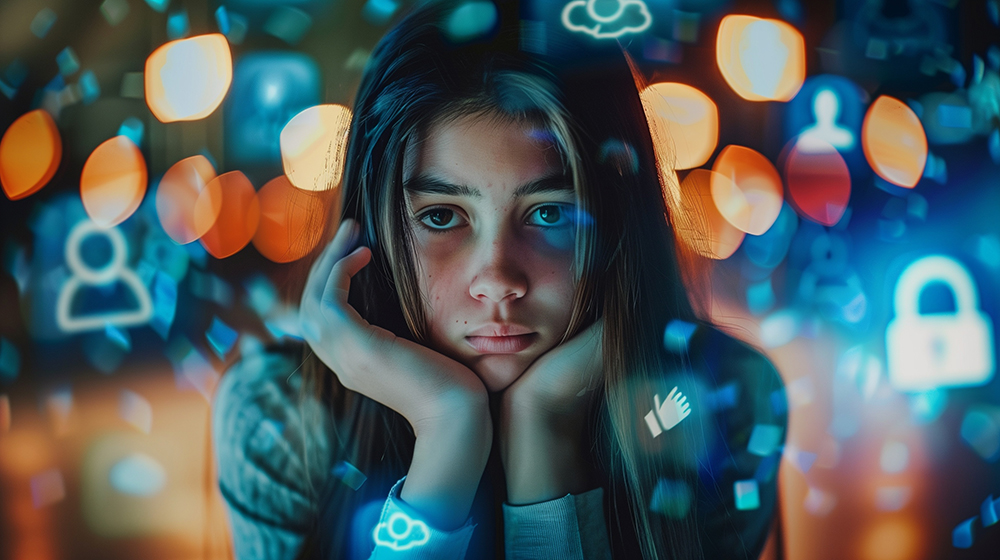
Spring ISD Joins National Lawsuit Against Social Media Giants to Combat Youth Mental Health Crisis
In a decisive move reflecting growing concern over the role of digital platforms in the youth mental health crisis, the Spring Independent School District Board of Trustees voted unanimously this week to join a sweeping nationwide lawsuit targeting major social media companies, including Instagram, TikTok, Snapchat, and YouTube.
The lawsuit, part of a multi-district litigation effort, seeks to hold these tech giants accountable for allegedly designing addictive algorithms that have led to alarming spikes in anxiety, depression, cyberbullying, and other behavioral issues among children and adolescents. Spring ISD now joins hundreds of school districts across the country—and follows in the footsteps of neighboring Houston ISD—in an escalating legal campaign demanding industry accountability.
A Stand for Student Well-Being
“We see the effects of social media addiction every day in our schools—students struggling with anxiety, peer pressure amplified by digital platforms, and even dangerous viral challenges,” said Spring ISD Board President Justine Durant. “This lawsuit is about protecting our children and ensuring that these companies are held accountable for the damage they are causing. Our students deserve safe learning environments, and we cannot ignore the role social media is playing in disrupting that.”
Durant’s remarks echo mounting concerns from educators and public health experts alike. According to the Centers for Disease Control and Prevention (CDC), teen rates of anxiety, depression, and suicide attempts have surged over the past decade—trends increasingly linked to excessive and unsupervised social media use.
A Financial and Emotional Toll on Schools
Spring ISD administrators say the psychological toll on students has forced schools to redirect critical resources toward mental health services and online safety initiatives. Many districts involved in the lawsuit cite rising costs associated with hiring additional counselors, responding to online threats, and managing student behavior issues stemming from social media-related incidents.
“Social media platforms are not just apps—they are environments where our children live part of their lives,” noted Board Vice President Natasha McDaniel. “We are taking this stand because the cost goes far beyond dollars. These platforms are disrupting our students’ ability to focus, build meaningful relationships, and develop the confidence they need to thrive.”
Mobile Sidebar Ad
Legal Action Without Financial Risk
Spring ISD will be represented by law firms Thompson & Horton, LLP, Eiland & Bonnin, PC, and O'Hanlon, Demerath & Castillo, PC under a contingency fee agreement. This arrangement ensures that the district incurs no upfront legal costs and only pays if a settlement or judgment is reached in their favor.
This structure has encouraged widespread district participation, enabling public schools to pursue justice without risking educational funds—especially critical as districts across the country face budget constraints and rising student support needs.
Expert Insight and National Context
The lawsuit joins a growing body of scrutiny around social media and its mental health effects, backed by a range of peer-reviewed studies and expert testimony:
-
A 2023 report from the U.S. Surgeon General declared that social media poses a "profound risk of harm to the mental health and well-being of children and adolescents." The advisory cited evidence linking frequent social media use with poor sleep, body image issues, and increased exposure to harmful content such as self-harm and disordered eating.
-
A study published in JAMA Psychiatry (2021) found that adolescents who used social media more than three hours per day faced double the risk of mental health problems, including depression and anxiety.
-
According to Common Sense Media’s 2023 census report, teens now average 4.8 hours daily on social media platforms. The report also found that more than 60% of teens report feeling pressure to look good or gain approval online.
-
Frances Haugen, a former Facebook employee turned whistleblower, testified before Congress in 2021 that internal research by Meta (Facebook’s parent company) showed Instagram worsened body image issues for one in three teenage girls—and that the company continued to prioritize growth over safety.
-
A 2022 Pew Research Center survey revealed that 59% of U.S. teens have experienced cyberbullying, with girls and LGBTQ+ youth reporting the highest rates of emotional distress linked to online interactions.
These findings have amplified calls for stronger regulation of digital platforms, particularly those frequented by minors. Legislators across both parties have proposed federal bills aimed at curbing algorithmic targeting and increasing platform transparency, but school districts like Spring ISD are taking the issue into their own hands through litigation.
A Call for National Reform
By joining this lawsuit, Spring ISD joins a growing movement that aims to create systemic change in the way social media companies operate and interact with young users. At its core, the legal action seeks to rebalance the equation between corporate profit and public good—especially where vulnerable youth are concerned.
The outcome of this litigation could have far-reaching implications, not only for the tech industry but also for how communities approach digital wellness in schools. As the case moves forward, parents, educators, and mental health advocates will be watching closely.
 Tiffany Krenek has been on the My Neighborhood News team since August 2021. She is passionate about curating and sharing content that enriches the lives of our readers in a personal, meaningful way. A loving mother and wife, Tiffany and her family live in the West Houston/Cypress region.
Tiffany Krenek has been on the My Neighborhood News team since August 2021. She is passionate about curating and sharing content that enriches the lives of our readers in a personal, meaningful way. A loving mother and wife, Tiffany and her family live in the West Houston/Cypress region.


